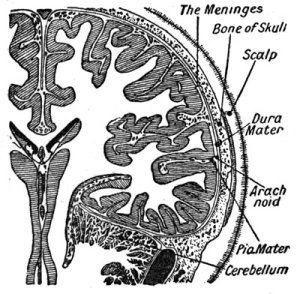[?]Subscribe To This Site
|
Bacterial Meningitis
What Is It?Bacterial meningitis is one of the most severe forms of meningitis and is life-threatening if not treated promptly. It is a true medical emergency.  In adults, the most common causative organisms responsible for this disease include Neisseria meningitides and Streptococcus pneumonia although several other bacteria can be implicated, including Haemophilus influenza, tuberculosis, gram negatives, Listeria monocytogenes and others. Another common cause of meningitis are viruses. To learn more about viral causes, see the Viral Meningitis page. What Types of Symptoms Are Typical?Meningitis symptoms generally include headache, high fever, stiff and/or painful neck, photophobia (avoidance of bright lights), nausea and vomiting and deteriorating level of consciousness.How Is The Diagnosis Typically Made?If a patient presents with the signs and symptoms of meningitis they generally undergo an lumbar puncture (spinal tap) to obtain cerebrospinal fluid for analysis. This can help make the diagnosis of bacterial infection as well as help to guide treatment by isolating the causative organism so that antibiotic therapy can be tailored to the specific case.What Are Some Common Treatments?Antibiotics directed toward the causative bacteria is the mainstay of treatment along with general supportive measures. The patients are generally hospitalized and antibiotics are given intravenously. The exact type and duration of treatment can vary from patient to patient depending on the severity of disease and the type of causative organism.Return to the CNS Infection page. Return to the Nervous System Diseases home page. Important Note: This site is not intended to offer medical advice. Every patient is different, and only your personal physician can help to counsel you about what is best for your situation. What we offer is general reference information about various disorders and treatments for your education. |
Inquire here about advertising on Nervous System Diseases.



